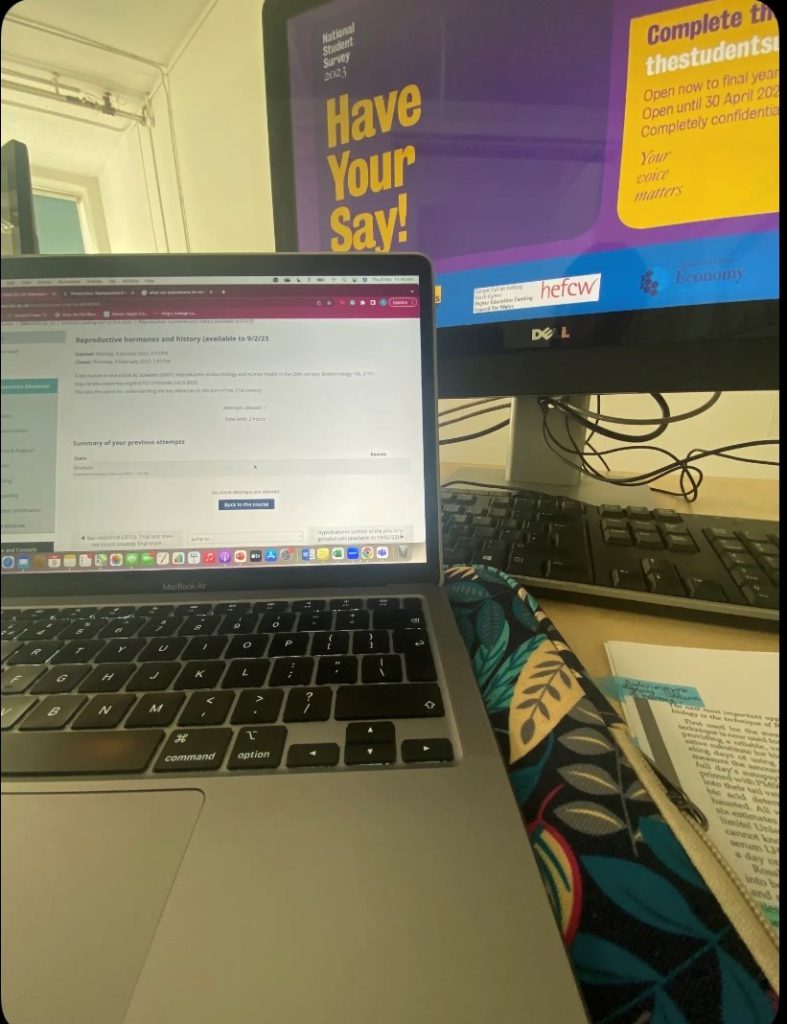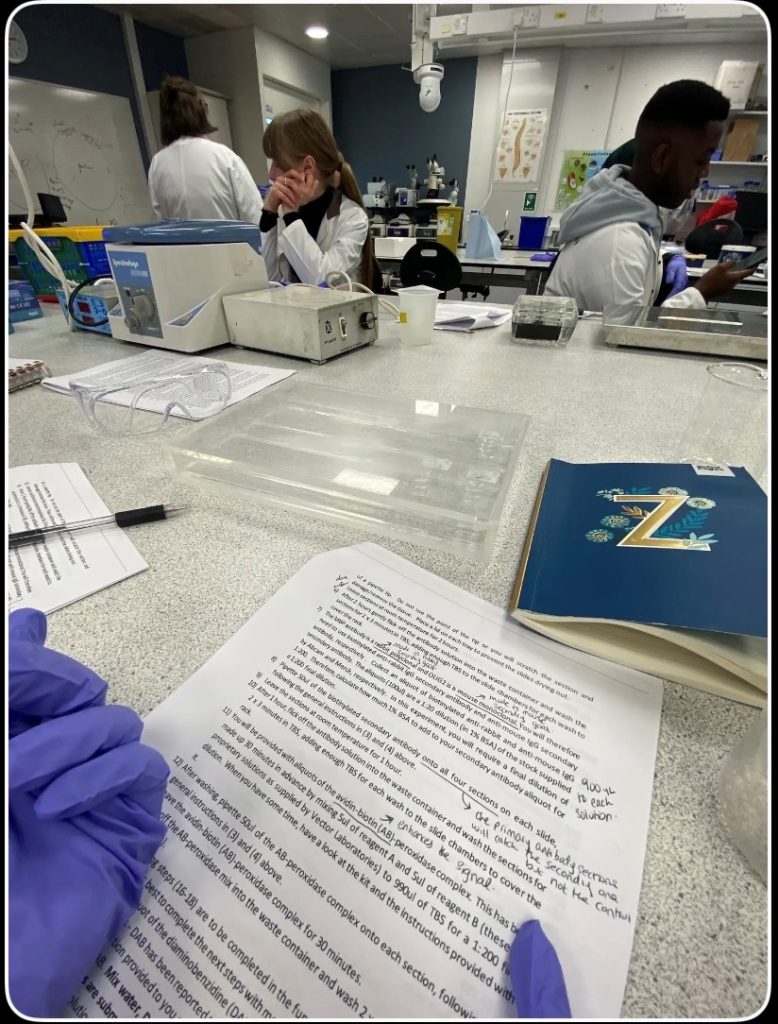
Written by Zahra Wali, Neuroscience & Psychology 3rd Year Student.
I think we can all agree on the fact that the assessment period whether that is coursework or exams is extremely stressful – especially now with the university bringing back in-person exams. The most frequently asked question by students is how to manage time and prepare for this period, and I thought I would share some tips and tricks on how to make the most of this time.
Exam preparation:
One of the major advantages of studying in the UK is the fact that students get an almost one-month longer easter break right before exams where the majority of the students do not have any classes – hence giving a lot of time to catch up on exam preparation. Evidently, the revision should have started beforehand, but realistically managing time between classes, jobs and coursework gets a bit difficult. A tip on how to make time to revise for exams throughout the year would be to leave one day (preferably the day you do not have any classes) to study the lecture content. Even if it does not seem like a lot, just taking out this one day helps in getting a few lectures out of the way. During the month of April, the remaining lectures should be revised and learnt so that a day before the exam you are prepared and spend the day using active recall and going over past paper questions. The past papers provided are extremely important as most of the time one or two questions can come from them. If you have essay-based exams I would suggest for revision make essay plans rather than proper essays, and to memorise the important experiments/research in the lectures, write it down on a paper rather than typing it out as it helps one remember the content more easily.
Dissertation prep:
For the BSc Neuroscience and Psychology and BSc psychology courses, the dissertation module starts from September and continues into the second semester, with the final assessment due in April. This module is a major component of the entire degree, hence it should be the number one priority. Since this module runs for such a long period of time and would require a lot of hours to be spent working on it, my first advice would be to pick a topic of your interest. At times the research will become monotonous and the topic should be able to stimulate you and your interests so you do not lose motivation. It is also important to choose a supervisor who you feel like you would get along with. Some of the projects offered with be from professors who have taught you, while the majority will be from those you do not know. I would suggest meeting with the supervisors before making your decision. Finally, although this is said often it is important to start your work early and make a preferred deadline for your work. In the first semester, you will be asked to submit a pre-registration and although it does not count much towards the grade it is a good piece of coursework to get you started with writing your report. In the second semester, there will be a poster submission and by the end of April the report. Right after winter break would be a good time to start on your report, even though it seems like there is a long time before the deadline in the final year students get busy with coursework submissions, lectures, job applications and collecting data for the project itself. Hence it is better to start early so that at the last minute you are just editing and perfecting your report.



Leave a Reply